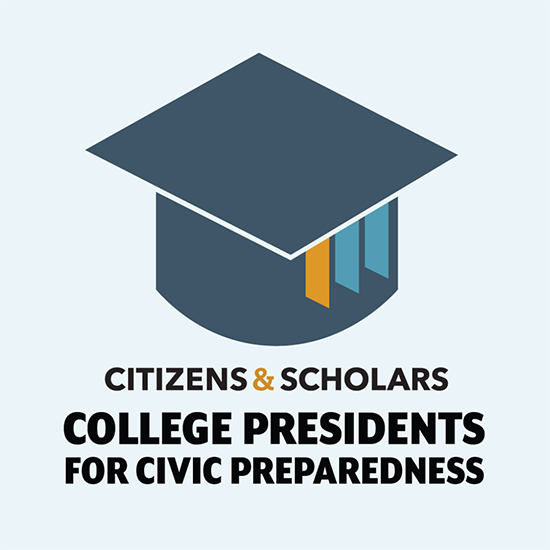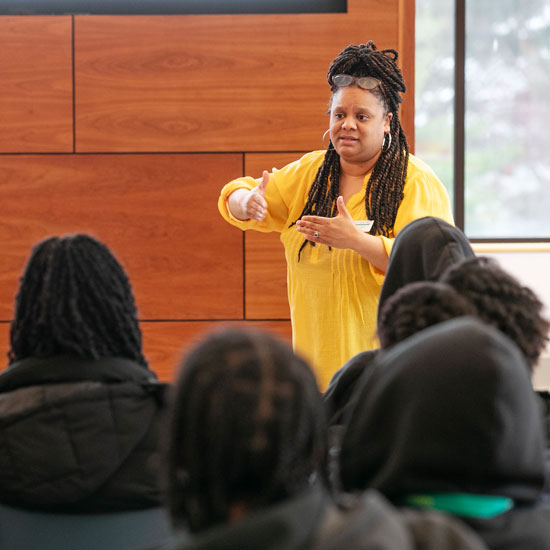New media and film studies minor launched
Scott Hamilton Kennedy ’87 was a theater major but went into a filmmaking career that won him an Academy Award nomination for The Garden, a documentary about the fight to save the South Central Community Garden in Los Angeles. In fact, Kennedy didn’t even land a film-related internship until after his graduation from Skidmore.
Kennedy, whose acclaimed documentary Fame High will be screened at SaratogaArtsFest this June, would no doubt be pleased to learn that Skidmore has created an interdisciplinary media and film studies minor. The curricular emphasis will be on exploring written, aural, and visual forms of communication; gaining a theoretical and contextual grounding in media studies; and learning current and developing forms of communications technology. The program is co-directed by English professors Tom Lewis and Jo Devine. Students can declare the minor beginning this fall.
“I would have given next to anything for Skidmore to have a film minor while I was here,” moaned Raphael Karen ’14, president of SkidTV, who like Kennedy found classes and faculty mentors to develop his passion and plans to pursue a film career. “There are hundreds of students who will jump on this.” In fact, more than 10 percent of this year’s first-year class indicated an interest in media studies, roughly the same as expressed interest in biology and economics.
“I've never been surer in my life about something like this minor,” says Associate Professor of Sociology Rik Scarce, a member of the faculty working group that researched and proposed the program and one of several faculty members who build video into their courses. “We'll get tons of students signing up for the minor, and I don't think a major is many years away.”
Scarce’s optimism may well be grounded in the fact that “48 faculty in 16 departments are teaching some 70 media-based courses that will count toward the new minor,” according to Professor of German Mary-Beth O’Brien, who chaired the faculty working group that developed the minor. Twenty-six of the courses will be offered this fall, ranging from “Africa in Film” (art history) to “Political Marketing” (management and business) to “Music Technology I” to “Introduction to Directing” (theater). Scarce adds, “The minor lets us pull together all these cool things that folks have been teaching here for years and package them under one roof.”
"It's taken awhile to establish the minor, but it's been worth it," says Devine, who regularly teaches courses in communications and global media. "We're not so much beginning this minor as building it on the foundation of film and media courses that we've established over the years. There has been a burgeoning of student interest which reflects the desire of many to understand the ways media is shaping our lives.”
To fulfill the minor, students must take "Introduction to Media Studies”, four courses cross-divisionally from two clusters (Media and Culture, and Applied Media), at least one 300-level course, and a structured field experience. Students will graduate with a credential of sorts—a recognized program that shows employers that they know their stuff.
The minor will integrate co-curricular resources such as Skidmore News, WSPN radio, and TV-3 and will also take advantage of various media afforded by the Tang Museum and the on-campus presence of WAMC Public Radio’s Southern Adirondack bureau. In addition, plans for Skidmore’s newly acquired Waring House offices include a video/photography studio plus a workspace for interns and students working on media projects. And of course, students can tap into an extensive alumni network in communications and media professions, enhancing the potential for internships and SEE-Beyond awards.
“For years I’ve had students come to me to learn how to make videos and tell a story,” says Vickie Riley, the Tang’s video resources content producer. “Regardless of course offerings, students were determined to learn it, often as self-determined majors. Tom Lewis has been Skidmore’s go-to guy for documentary films and has been instrumental in filling that need. I’ve personally been very impressed with many of his students. I can’t wait to see what they will produce with more robust resources.”
As for resources, the minor will leverage Skidmore’s new John B. Moore Documentary Studies Collaborative, an interdisciplinary hub made possible through the vision and support of John B. Moore, son of Skidmore’s second president, Henry T. Moore, and husband of Bettina Towne Moore ’41, along with his son-in-law and daughter-in-law James and Sue Towne. Additional support comes from a $750,000 Andrew W. Mellon Foundation grant that is funding the minor and also supporting the Moore Collaborative and the Visualization Project, a related faculty initiative.
The Moore Collaborative, slated to launch this fall under inaugural director and history professor Jordana Dym, will will serve as a literal and figurative home for students and faculty pursuing various visual projects, providing support for documentary arts, academic-year courses, workshops, opportunities such as the Skidmore/Saratoga Memory Project, and a summer Storyteller’s Institute. The Visualization Project, which aims to create a cohort of faculty engaged in visual literacy, will be headed by art professor Deb Hall.
The combination of the new minor, existing campus resources, and the new Moore Collaborative will provide students what they need to both understand and communicate in visual terms.
“Students will be able to rewrite the meaning of research project,” says Scarce. “For example, imagine ecology on film—all the data are there, most of the writing will be there, and you'll be able to see what used to be written about. Film and media are relevant to every discipline, and professors and students alike want to be able to do new things in their majors with these technologies. Now, they can.”


